In 2019, after finding out that her toddler, Luna, was autistic, Yadira García Rojas became fixated on the condition. She would spend her days reading websites and academic papers, trying to learn whatever she could to help her daughter, who doesn’t speak and needs full-time care and support.
When the treatments started, they came as something of a shock. At a clinical centre for mental health in Mexico City, therapists would encourage Luna to talk by offering her strawberries, then take them away until she asked for them verbally. They would punish the girl when she flapped her hands or did not make eye contact, García Rojas remembers. And they would make her crawl through a play tunnel that she was terrified of — sometimes until she stopped crying.
“It was literal torture,” says García Rojas. Most of the interventions, she says, seemed directed at making Luna and other children hide their autism — to be less themselves — no matter the cost in tears and screaming. “I always came out in crisis.”
García Rojas stopped the therapy sessions shortly after COVID-19 hit Mexico in 2020. A year later, she received her own autism diagnosis. She started a local advocacy group aimed at reducing stigma against autistic people in Mexico and later joined an international coalition focused on shaping the research agenda, the Global Autistic Task Force on Autism Research (GATFAR). The group, made up of autistic scientists, physicians, therapists and advocates, aims to help change how academics see autistic people, which influences how physicians and therapists work with them, she says. “If there’s no change there, there’s no change anywhere.”
Formed in 2022, GATFAR adds to a growing chorus of autistic and non-autistic advocates, including researchers, physicians and clinicians, who argue that autism research, writ large, is not serving the needs of autistic people and could, in fact, be causing harm.
“The research agenda is not set with autistic people’s interest or well-being in mind,” says GATFAR member Heini Natri, a computational scientist at the Translational Genomic Research Institute in Los Angeles, California.
She and others say that despite growing awareness of autism and acceptance of neurodiversity in many parts of society, the academic and clinical research community still generally considers autism a disease, a disorder, a problem to be solved. The focus of research and therapies, they say, is often on suppressing autistic traits and adopting neurotypical behaviours, rather than developing services and programmes to support autistic people.
At the end of 2021, an influential report in The Lancet setting clinical research priorities for the next five years angered many autistic advocates because of its focus on studying medications and behavioural therapies, and because it adopted the term “profound autism” to describe autistic people who require round-the-clock care, and who are often non-speaking, minimally verbal or intellectually disabled1.
High-profile autism genetics project paused amid backlash
It reignited a debate over who gets to set the agenda. Pushing back against GATFAR and other activists were researchers and parents arguing that autistic people who are non-speaking or intellectually disabled — and their families — are at risk of being left behind and forgotten about. They’ve likened some of the arguments made by autistic advocates to censorship that could drive young scientists out of the field. “Researchers themselves need to push back against these attempts to muzzle them and thus control the direction of autism research,” wrote Amy Lutz, vice-president of the US National Council on Severe Autism in Philadelphia, Pennsylvania, in an opinion article in January (see go.nature.com/3vtycmn).
But such warnings are groundless, says Mary Doherty, a member of GATFAR who is based in Navan, Ireland, and founded Autistic Doctors International, which represents more than 700 autistic physicians from around the globe. Autistic people have historically had no control over what non-autistic researchers say and do, she says, “but it’s a narrative that suits a certain part of the research community”.
More autistic and non-autistic researchers have started working together in studies that prioritize the views of autistic people. For the past decade, some autistic people have been leading the research. And some prominent scientists have begun to adjust their approach.
“Neurotypicals and autistics, we’re both important,” says García Rojas. “If we work together, we’ll be better off.”
Silent subjects
While working towards a master’s degree in psychology in 2016, Monique Botha regularly thought about quitting. Every other paper they read seemed to contain demeaning descriptions of people like them. Language deficits in autistic people stem from a “failed domestication of the human brain”, one read2. Another concluded that autistic children lack the uniquely human ability of sharing emotions, experiences and activities, much like non-human apes3.
“I got exposed to that and I was like, ‘You know what? I think I might be out,’” says Botha, who now works as a community psychologist at the University of Stirling, UK, and studies how autism research dehumanizes, objectifies and stigmatizes autistic people. (Elliot Murphy, a cognitive neuroscientist at the University of Texas Health Science Center in Houston and a co-author of the paper on failed domestication2, says that the concept is technical and distinct from colloquial understandings of domestication. He adds that he has reached out to Botha and other authors “to correct them, and I have never received a response”.)
Despite being discouraged, Botha says, one study, in particular, convinced them to continue their research. It showed that autistic adults die on average 16 years earlier than the general population, mostly from suicide4. For those with an intellectual disability, it was 30 years earlier.
“My community is bleeding, my community is dying,” says Botha. In 2018, they and their adviser explained why, in a study that included more than 100 autistic participants. Internalized stigma and everyday discrimination, they found, built up stress that resulted in poor mental health5. Botha says research is partly to blame. “If you continually describe autistic people through subhuman terms, then you will allow for subhuman treatment.”
These labs are remarkably diverse — here’s why they’re winning at science
Dehumanizing language has shaped autism research for decades. Some of the most disparaging remarks came from Ole Ivar Løvaas, a Norwegian American clinical psychologist. During a 1974 interview, Løvaas referred to autistic children — his patients — as “little monsters” who were “severely disturbed”. “You have a person in the physical sense — they have hair, a nose and a mouth,” he said, “but they are not people in the psychological sense.”
Løvaas, who died in 2010, founded applied behaviour analysis (ABA), a therapeutic approach that aimed to make autistic kids indistinguishable from their peers. Løvaas was also a proponent of gay and transgender ‘conversion therapy’. Today, ABA therapies remain the most common type of autism intervention covered by insurance in the United States. The strategies used to modify children’s behaviour have mostly improved — few providers still use spanking or electric shocks. But even though studies indicate that the therapies can teach communication and socialization skills6, the approach has been scrutinized for the lack of solid supporting data. Some research even points to the possibility that they can lead to trauma and abuse — including a link to developing post-traumatic stress symptoms7.
“That’s what autistic people have been saying for decades,” explains Doherty. “But we’re not believed. We’re not seen as credible agents of knowledge about our own lives.”
It could be a legacy of the field. Conventionally, autistic people have been silent subjects in autism research, says Botha. “This has been thought of as acceptable and, worse, it’s been seen as desirable.” Data indicate that negative attitudes towards autism are very much alive in the research community.
Late last year, Botha co-authored a study that interviewed about 200 autism scientists, both senior and in training, to investigate how they understand the people they study. Nearly 60% of them openly expressed ableist views8 that stigmatized, dehumanized and objectified autistic people. One participant described them as “shut down from the outside world”, “rigid”, “emotional” and, oddly, “fat”. Medical views that autism is a disorder or disease correlated with higher odds of ableist ideas, the researchers found. In turn, involving autistic people in research strongly correlated with lower odds of ableism.
Tobi Abubakare says that the research agenda can be hostile to autistic people.Credit: IU Bloomington
The conclusions don’t surprise Tobi Abubakare, an autistic clinical psychologist at Indiana University Bloomington. “It is a hostile environment,” they say.
Botha thinks that the findings should be explored more, but that they “really get to the heart of the issue, which is power, including the power involved in creating autism knowledge”.
Here to help
About four years ago, Kristen Bottema-Beutel, an autism researcher at Boston College in Massachusetts, went through a personal crisis. She had heard some autistic researchers and advocates criticize her field as ableist, and she couldn’t shake the feeling that she hadn’t stopped to inspect her own work. Were her descriptions of autism harmful? Had she herself been ableist?
She felt that a lot of her colleagues were resistant to such reflection. “There’s this tendency to be like, ‘Well, I’m beyond critique because I’m just here to help.’” With that, she says, comes a lack of scrutiny for many of the treatments and interventions that are offered to autistic people.
In 2020, for example, a meta-analysis explored 1,700 studies on non-pharmacological interventions — from sensory and behavioural therapies, similar to the ones García Rojas took Luna to, to some that are animal-assisted or technology-based. The results echo what several others have found: most autism interventions rely on low- to moderate-quality evidence9.
“When you actually look at the evidence, it is not particularly strong,” says Bottema-Beutel.
Although she was not involved in that work, she participated in another meta-analysis that failed to find solid methodological rigour in therapies for young children10. She and her colleagues found that only about one-third of studies that test behavioural interventions are randomized controlled trials — the gold standard for determining how effective a treatment is.
In other studies11–13, Bottema-Beutel has found that many papers fail to disclose important conflicts of interest or to report unintended negative side effects, such as children becoming distressed, hurt, bored or fearful as a result of an intervention.
The attitude is almost like, ‘nothing that could result from our intervention would be worse than being autistic’, Bottema-Beutel says. After all, “we’re just trying to help”.
A rising tide of change
When Christina Nicolaidis, a health-services researcher at Portland State University in Oregon, started researching partner violence in the 1990s, mentors told her that people who had experienced domestic violence “hated” researchers. Nicolaidis was sceptical that they really felt this way. “That tells me that researchers have screwed up,” she says.
After speaking to advocates and survivors, she realized that their views were rarely considered in the research. That seemed misguided: they had a wealth of knowledge and experience that “no matter what I could learn in my classes, I couldn’t get”, Nicolaidis says.
The experience shaped her career. Now she and her colleague, autistic researcher Dora Raymaker, co-direct the Academic Autism Spectrum Partnership in Research and Education (AASPIRE) — one of the longest-standing projects in which autistic and non-autistic scientists, as well as community members, work together as equals.
Since 2006, “we’ve kept that initial desire to say, ‘Hey, we want to do research that is important to the autistic community’,” says Nicolaidis.
It’s a different way of approaching a field in which non-autistic perspectives have typically driven the decisions. Community-based participatory efforts see autistic people as a marginalized group, she says, rather than as patients whose brains have gone awry.
Rachel Kripke-Ludwig helps to ensure that autism research is relevant to autistic people.
In the conventional approach, several researchers “are mostly working off the wrong set of assumptions”, writes Rachel Kripke-Ludwig, a non-speaking autistic advocate and student based in Menlo Park, California. “The best way to get it right is to listen to us.” She, along with other autistic people, sits on AASPIRE’s community council, discussing whether research questions are relevant, recruitment protocols respectful and methods scientifically sound.
Earlier this year, AASPIRE launched a project to understand what outcomes matter most to autistic people — which could go beyond standard life achievements, such as marriage or employment.
Studies show that autistic people want more research on mental health, services and the other conditions that many of them experience — including epilepsy, gastrointestinal pain, intellectual disabilities and sleep problems14.
However, most funding goes to studies on genetic and environmental risk factors, treatments and interventions. And according to Steven Kapp, an autistic developmental psychologist at the University of Portsmouth, UK, “there’s little long-term [data] that clearly indicate that autism research, as a whole, has benefited autistic people”. The field, he says, “has not served the needs of autistic people well”.
Even participatory approaches might not be a silver bullet, however. Some efforts to be inclusive end up being superficial and tokenistic, warns developmental psychologist Liz Pellicano at University College London.
“That’s kind of critical,” Pellicano says. “To learn and actually take on people’s different expertise, there needs to be that shift” of power.
Profound divisions
Feeding controversy is the 2021 Lancet report. The authors, an international commission of mostly non-autistic researchers and clinicians, drafted clinical and research recommendations for what should be done to address the needs of autistic people in the next five years1.
Critics agreed with some of the report’s calls, such as tackling inequality and producing better data on the effectiveness of therapies. But the document, they said, misrepresented the views of some autistic people by prioritizing studies on interventions and medications — as opposed to looking into causes of death, mental-health support, assisted communication or debunking pseudoscientific treatments.
“If autistic people [had been] included in a meaningful way,” Natri says, “that five-year plan that the Lancet commission proposed would probably look very different.”
How three research groups are tearing down the ivory tower
Tony Charman, a developmental and clinical psychologist at King’s College London and co-chair of the commission, agrees that the report fell short in not including more autistic perspectives. “When I look back and read what we wrote, quite a lot of the research recommendations are coming from the dominant — but not the only — position within the group,” he says. “There is a piece missing there.”
The commission also adopted the term ‘profound autism’. This drew pushback from autistic researchers and advocates15, and from organizations, such as GATFAR16, who saw the label as arbitrary and scientifically inaccurate. They argued that it unnecessarily splits the autistic community, undoing a decision in 2013 to merge a wide range of conditions, including Asperger’s syndrome, into one diagnosis.
“It’s interesting that it has created such a furore,” says clinical psychologist Catherine Lord at the University of California, Los Angeles, who co-chaired the Lancet commission, adding that the report intended to call more attention “to people who are often forgotten”.
Indeed, the proportion of autism studies with participants who would fit the commission’s definition of ‘profoundly autistic’ has dramatically decreased over time17 — partly, some argue, because of the fusing of autism diagnoses.
Alison Singer, a co-author of the Lancet report and president of the Autism Science Foundation, a New York City-based organization that funds autism studies, says that the term is necessary. “You have people with autism who are so high-functioning that they graduate from Harvard Law School. And then you have people like my daughter”, who has severe intellectual disability. “For me, the solution is we have to return to bifurcating the diagnosis,” she says.
Many autistic people see that as a step back to labels that they have rejected. “I am profoundly gifted, not profoundly low-functioning,” writes Payam, a non-speaking autistic advocate who is based in Atlanta, Georgia. Payam is not an exception, says his mother, Parisa Khosravi. “We need to presume competence and listen to our non-speakers,” she explains, “rather than assume intellectual disability.”
Many other autistic people who are non-speaking or have intellectual disabilities have found ways to speak up for themselves, says Zoe Gross, director of advocacy for the Autistic Self Advocacy Network in Washington DC. “It is completely inaccurate to say that as a group, autistic people with intellectual disabilities, or nonspeaking autistic people, can’t advocate for themselves,” she wrote in an e-mail. “Not all autistic people have access to a communication method that works for them, and for some people, the currently available communication methods may just not work.”
A further disagreement has fractured the autism community. Late last year, Singer co-authored a commentary saying that calls for autism researchers to be more careful about the language they use was ‘censorship’18. The piece cautioned that the concerns raised by self-advocates will push early-career investigators out of the field. “They may move on to study other disorders,” says Singer. “There is a real threat to research.”
The article generated sharp criticism from both autistic and non-autistic researchers. “That’s a wild claim,” says Bottema-Beutel. “It expresses a level of fragility that I think is inappropriate for a community of researchers.”
Botha agrees. “It’s laughable to pretend that autistic people have institutional and systemic power to steer autism research when traditionally we’ve been kept out of it.”
It’s hard to say how influential the Lancet report, or the recommendation to use ‘profound autism’, will be, several sources told Nature. But the intense divisions the report has generated mask some crucial progress over the past few years.
For some, the debate has served as a wake-up call. “It’s a kind of revolution, I think,” says psychologist Simon Baron-Cohen at the University of Cambridge, UK.
In September 2021, he and his colleagues paused the Spectrum 10K study, a massive project aiming to understand the genetics of autism and co-occurring conditions. Critics argued that the study had commenced without meaningful consultation of autistic people and that the data it collects could be misused. The team has now launched a thorough consultation, to be finished later this month, that will probably alter the project’s nature and protocols, Baron-Cohen says. “We’re in listening mode at this point.”
Autism research funders in Australia have, for some time now, been allocating more grants that reflect autistic priorities19. Other institutions, such as the Interagency Autism Coordinating Committee, a US federal advisory panel, have followed suit: its 2021–22 strategic plan for autism research called for more funding on well-being and inclusion.
In 2020, the International Society for Autism Research created a committee of autistic researchers — including Abubakare, Kapp and Raymaker — to foster collaborations with their non-autistic peers and offer mentorships to young autistic trainees starting to navigate autism research.
All these efforts fuel the hope that momentum to include autistic perspectives in autism science will continue to grow.
The only way forward, says Kripke-Ludwig, is to make room for more autistic people in academia — even if discomfort ensues. “I am not a broken version of normal,” she wrote to Nature. “I am autistic, disabled and fabulous. Get used to it.”





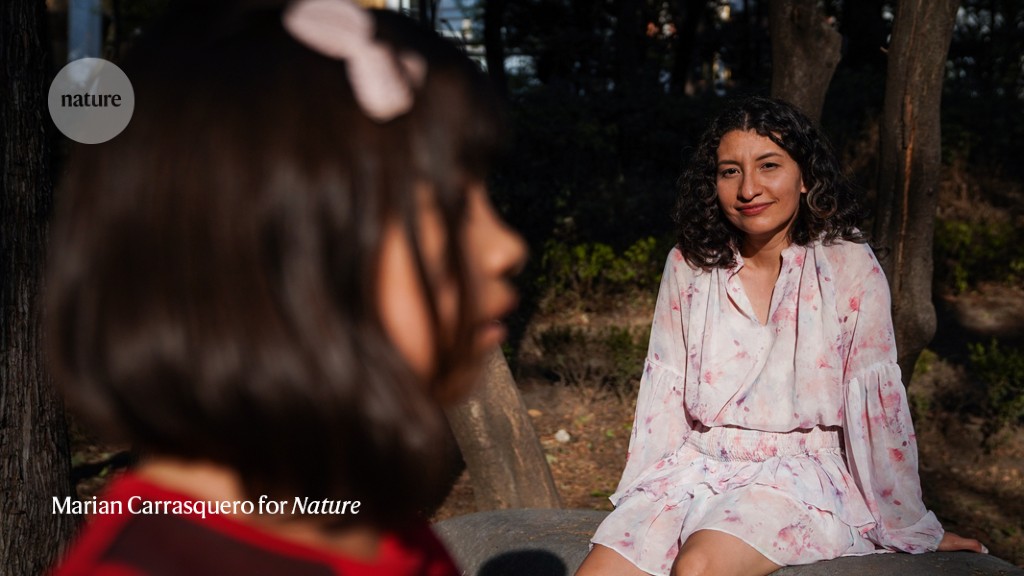

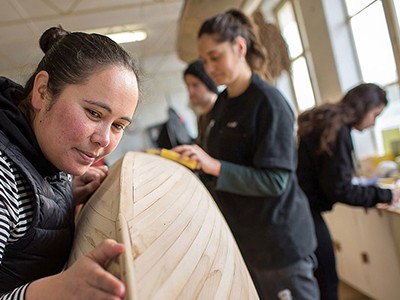
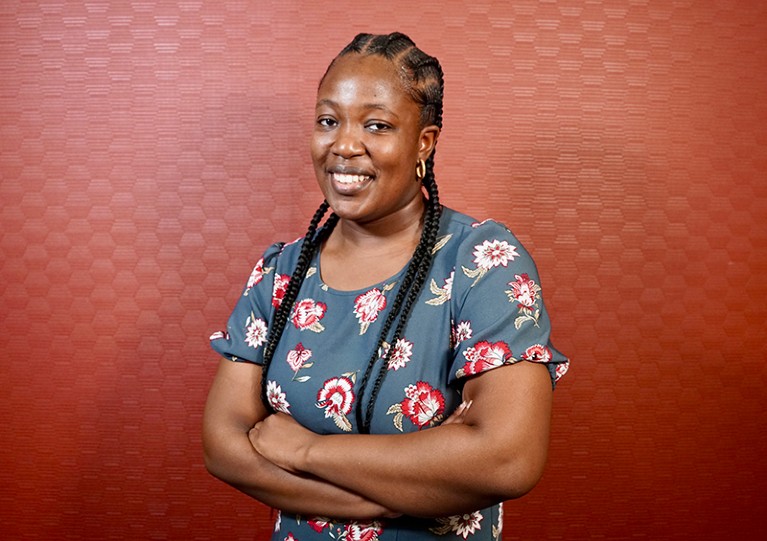
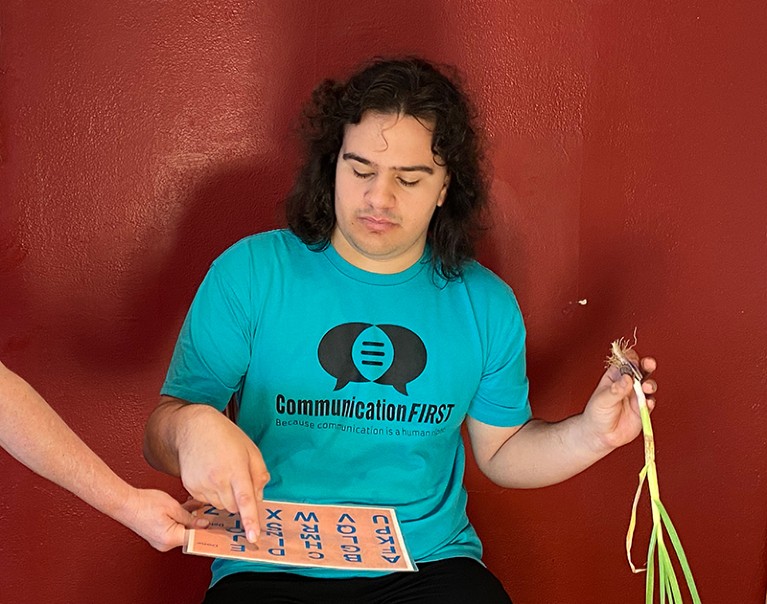
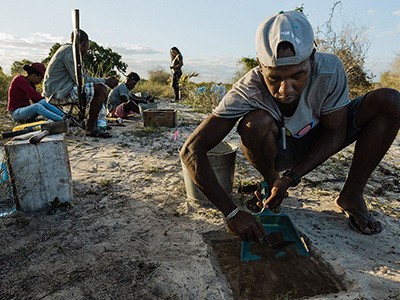
More News
Author Correction: Bitter taste receptor activation by cholesterol and an intracellular tastant – Nature
Audio long read: How does ChatGPT ‘think’? Psychology and neuroscience crack open AI large language models
Ozempic keeps wowing: trial data show benefits for kidney disease